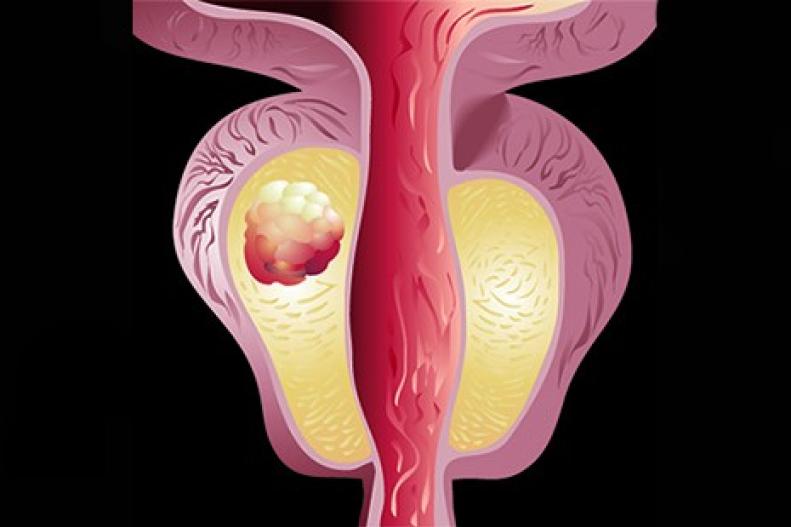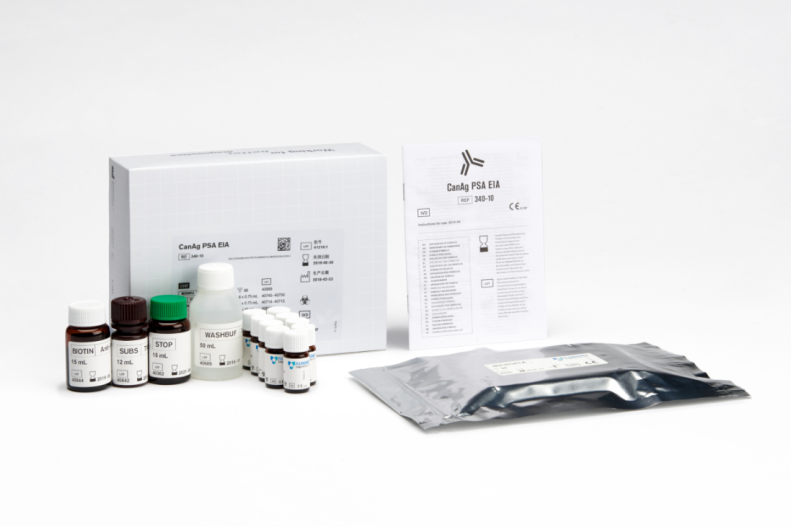CanAg® PSA EIA
PSA is a 32 kDa single-chain, glycoprotein serine protease with a chymotrypsin-like specificity produced by the secretory epithelium of the prostate gland1. PSA is normally secreted into the seminal fluid and plays a functional role in the cleavage of the seminal vesicle proteins and the liquefaction of the seminal coagulum2. Only low levels of PSA are normally present in the blood stream, and increasing serum concentrations indicate prostatic pathology, including benign prostatic hyperplasia and cancer of the prostate. Determination of PSA is now widely used for detection and management of patients with prostatic cancer and considered as the superior serological marker for cancer of the prostate3.
PSA has been shown to form stable complexes with different antiproteases and the dominating portion of PSA in patient serum occurs in complex with α1-antichymotrypsin (PSA-ACT)4. However there are large variations in the relation between Free PSA and PSA-ACT complex between different individuals. Studies have also indicated that the proportion of Free PSA is higher in benign prostatic disease as compared to prostatic cancer5. The antibodies in the PSA EIA have been carefully evaluated and selected to give the same molar response for Free PSA as for the PSA-ACT complex7. The PSA EIA thus gives a true “total” PSA value independent of the individual variations of free and ACT-complexed PSA.
References
- Wang MC, Valenzuela LA, Murphy GP, Chu TM (1979). Purification of a human prostate specific antigen. Invest Urol 17: 159-163.
- Lilja H. (1985). A kallikrein-like serine protease in prostatic fluid cleaves the predominant seminal vesicle protein. J Clin Invest 76: 1899-1903.
- Oesterling JE (1991). Prostate specific antigen: A critical assessment of the most useful tumor marker for adenocarcinoma of the prostate. J Urology 145: 907-923.
- Lilja H., Christensson A., Dahlén U., Matikainen M-T, Nilsson O., Pettersson K., Lövgren T. (1991). Prostate-specific antigen in serum occurs predominantely in complex with α1-antichymotrypsin. Clin Chem 3 7: 1618-1625.
- Christensson A., Björk T., Nilsson O., Dahlén U., Matikainen M-T., Cockett ATK, Abrahamsson PA, Lilja H. (1993). Serum prostate specific antigen complexed to α1-antichymotrypsin as an indicator of prostate cancer. J Urology 150: 100-105.
- Oesterling JE., Cooner WH., Jacobsen SJ., Guess HA., Lieber MM. (1993). The influence of patient age on the serum prostate specific antigen concentration: An important clinical observation. Urol Clin North Am 20: 671-80, 1 993a.
- Nilsson O., Peter A. Andersson I., Nilsson K., Grundström B., and Karlsson B. (1997) Antigenic determinants of prostatespecific antigen (PSA) and development of assays specific for different forms of PSA. Br J Cancer 75(6): 789-79
Product number 340-10



